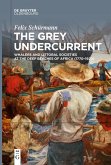Based on extensive archival research in six countries and intensive fieldwork, the book analyzes the history of the village of Nkholongue on the eastern (Mozambican) shores of Lake Malawi from the time of its formation in the 19th century to the present day. The study uses Nkholongue as a microhistorical lens to examine such diverse topics as the slave trade, the spread of Islam, colonization, subsistence production, counter-insurgency, decolonization, civil war, ecotourism, and matriliny. Thereby, the book attempts to reflect as much as possible on the generalizability and (global) comparability of local findings by framing analyses in historiographical discussions that aim to go beyond the regional or national level. Although the chapters of the book deal with very different topics, they are united by a common interest in the social history of rural Africa in the longue durée. Contrary to persistent clichés of rural inertia in Africa, the book as a whole underscores the profound changeability of social conditions and relations in Nkholongue over the years and highlights how people's room for maneuver kept changing as a result of the Winds of History, the frequent and often violent ruptures brought to the village from outside.
"This book is a hugely inspiring global micro-history of a tiny village of less than a thousand people on the shores of Lake Malawi/Nyasa in western Mozambique. [...] Written in a clear and accessible style, the book is both empirically rich and rich in theoretical and conceptual reflections [...]. All in all, this is an excellent book." Geert Castryck in: Connections. A Journal for Historians and Area Specialists, 17.09.2024, www.connections.clio-online.net/publicationreview/id/reb-139567 (20.9.2024)








